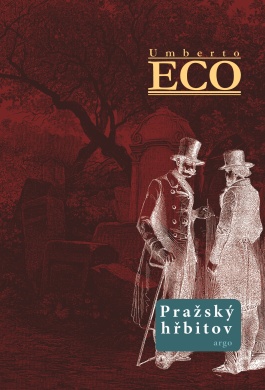
Italian writer Umberto Eco, author of The Name of the Rose, has died
Rome - Italian writer Umberto Eco died on Friday at the age of 84. Italian media reported his passing, citing the writer's family. Eco gained fame with his first novel The Name of the Rose, which Jean-Jacques Annaud later adapted into a well-known film starring Sean Connery.
The death of one of the most esteemed figures in literature was addressed today by Italian Prime Minister Matteo Renzi. "He was an example of a remarkable European intellectual, where unique intelligence combined with tireless foresight into the future. This is a great loss for culture, which will miss his writing, his voice, his clear and vivid thinking, and his humanity,” Renzi said.
Director Annaud referred to Eco as his "closest friend." "Umberto was a man I greatly admired and shared the joy of life with. He was an extraordinarily educated man who loved a cheerful life. He enjoyed everything, he was full of joy. He was a mix of a scientist and a person who knew how to laugh and eat well. He had an extraordinary memory, he remembered everything. He would read a page and then recite it back to you without mistake. He was also politically active, extremely angry at (former Italian Prime Minister) Silvio Berlusconi,” Annaud said in an interview with the radio station France Info.
Eco parted ways with the publisher Bompiani in December when Berlusconi's publishing house Mondadori acquired it. Eco, who leaned left politically, reportedly rejected the idea of having his work published by Berlusconi, according to the Italian press.
Eco, known not only as a writer but also as a philosopher and linguist, died at his home on Friday around 10:30 PM CET, his family reported. The writer had long battled cancer, according to AFP.
In addition to the novel The Name of the Rose published in 1980, other Eco novels that became international bestsellers include Foucault's Pendulum, The Island of the Day Before, Baudolino, The Mysterious Flame of Queen Loana, and Prague Cemetery. His last novel, Numero Zero, was published last year. All of them were translated, among others, into Czech.
The Name of the Rose was published when Eco was 48 years old. Until then, he was known mainly in university circles as the author of scholarly studies on semiotics, which he once defined as "the philosophy of language."
After the publication of The Name of the Rose, he suddenly became an international celebrity, and not only he was taken aback, but also literary critics, wrote the British newspaper Independent. A total of 14 million copies of the work were sold worldwide, Eco received several international literary awards, and he was asked countless times about the nature of this success. He attributed it to the shared fates of people in the 14th century, when the novel takes place, and at the end of the twentieth century. "I think readers see those roots, they realize that everything that existed then - from banks and inflationary spirals to the burning of libraries - exists today too,” he said in one interview. However, he gradually lost patience in responding to ever-repeated questions regarding The Name of the Rose. "I cannot spend the rest of my life talking about a book I left behind five years ago,” he once complained.
Eco also published a number of scholarly works. In 1962, he published a literary manifesto of postmodernism, the essay The Open Work, where he argued that meaning is not in the text itself or in the reader alone, but only in their mutual confrontation.
Last year in an interview with the British newspaper The Guardian, he stated: "I don't know what the reader expects. I think (the queen of romance) Barbara Cartland writes what the reader expects. I believe that the author should write what the reader does not expect. It's not about asking what they need, but changing them... creating the kind of reader you want for your story.”
Eco was born on January 5, 1932, in the northern Italian city of Alessandria and studied medieval philosophy and literature at the University of Turin. He claimed that writing novels was just a part-time job for him. "I am a philosopher; I only write novels on weekends,” The Guardian quoted Eco.
His father worked as an accountant in a factory producing iron bathtubs and wished his son to become a lawyer. However, Eco was drawn to philosophy and fascinated by the world of the Middle Ages. He considered the reserve of his home region a source of his "vision of the world, which includes skepticism and resistance to rhetoric," as he said. He has always loved stories and wrote novels and comics even in his adolescence. "I was a perfectionist, and I wanted them to look like they were printed. So I wrote them in print letters, made title pages, tables of contents, illustrations. It was so exhausting that I finished nothing. Back then, I was a great writer of unfinished masterpieces,” he said in an interview in 1988.






